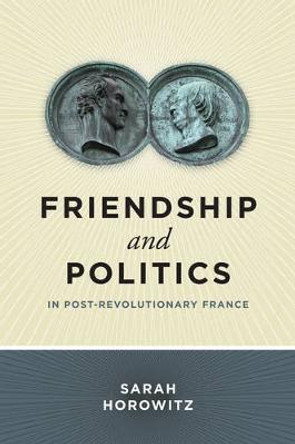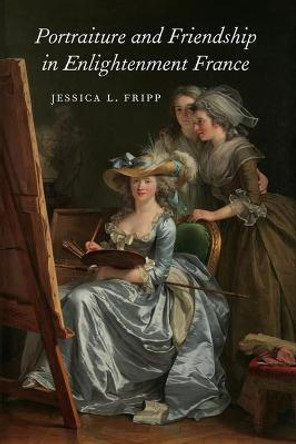Description
Portraiture and Politics in Revolutionary France challenges widely held assumptions about both the genre of portraiture and the political and cultural role of images in France at the beginning of the nineteenth century. After 1789, portraiture came to dominate French visual culture because it addressed the central challenge of the Revolution: how to turn subjects into citizens. Revolutionary portraits allowed sitters and artists to appropriate the means of representation, both aesthetic and political, and articulate new forms of selfhood and citizenship, often in astonishingly creative ways. The triumph of revolutionary portraiture also marks a turning point in the history of art, when seriousness of purpose and aesthetic ambition passed from the formulation of historical narratives to the depiction of contemporary individuals. This shift had major consequences for the course of modern art production and its engagement with the political and the contingent.
About the Author
Amy Freund is Assistant Professor and the Kleinheinz Family Endowment for the Arts and Education Endowed Chair in Art History at Southern Methodist University
Reviews
"Amy Freund's incisive analysis of revolutionary portraiture and its engagement with political ideology and consumer culture provides a much-needed account of the thriving portrait market during the French Revolution-and of portraiture's role in the redefinition of personal identity, social categories, and aesthetic hierarchies that emerged in the beginning of the modern era. Her book is an indispensable addition to the body of recent scholarship that looks beyond the privileged genre of history painting to offer a wholesale reassessment of the significance of portraiture during the eighteenth century and the revolutionary period. Persuasive, thoughtful, and lucidly written, Portraiture and Politics in Revolutionary France will appeal to anyone interested in portraiture and the political functions of art."
-Melissa Hyde,University of Florida
"This beautiful and beautifully written book bristles with insights into the commerce, aesthetics, and especially politics of portrait painting during the French Revolution. But these terms hardly begin to capture the magnitude of Amy Freund's accomplishment, which is to make us look in new and surprising ways at the meaning of what seems so simple-the picture of a person. Portraits do not just decorate walls; they capture the essence of revolutionary change."
-Lynn Hunt,UCLA
"During and after the French Revolution, the political identity of French citizens went through dramatic change. In this well-researched and intelligent book, art historian Amy Freund demonstrates how this change was reflected in the portraiture of the era."
-Sandra Rothenberg ARLIS/NA Reviews
"In this smart, handsomely produced book, Freund adeptly explores the intersections of self-presentation, aesthetics, politics, and the market in revolutionary France. . . . The book's importance, however, extends well beyond the 1790s. It is a model for thinking about politics and market forces together and ultimately contributes to what a modern sense of self entails.Summing up: Essential."
-C. A. Hanson Choice
"Freund's method of interpreting portraiture, the rigor of her research, and the intrinsic fascination of her case studies all deserve praise and provide a role model for how art historians can understand, and write about, portraiture."
-Shearer West caa.reviews
"Fueled by Freund's empathetic attitude toward her subject, this book, although focused on the genre of portraiture in France, is probably the best introduction now available to the art of the French Revolution, in other words, to the way artistic form and meaning were reconfigured by the rapid transition from monarchy to republic."
-Philippe Bordes H-France
"Amy Freund's rich and beautifully illustrated study, Portraiture and Politics in Revolutionary France, tackles the fascinating collaborative role played by portrait artists and their sitters in the 'reimagining of selfhood' (5) and construction of the 'citizen' within the context of the new political and social order(s) from the fall of the Bastille to the rise of Napoleon. By tightly focusing on the period 1789-1804, Freund highlights the close correlation between changing regimes-from the Estates-General to the National Assembly, through the Terror, the Directory, and the Consulate-and the visual representation of French subjecthood, identity, and political agency."
-Alexandra K. Wettlaufer Nineteenth-Century French Studies
Book Information
ISBN 9780271061948
Author Amy Freund
Format Hardback
Page Count 312
Imprint Pennsylvania State University Press
Publisher Pennsylvania State University Press
Weight(grams) 1746g
Dimensions(mm) 254mm * 229mm * 28mm







